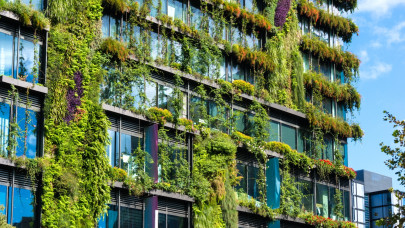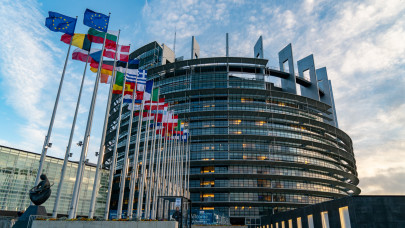For the first time, the energy efficiency first principle is given legal strength with a clear requirement for EU countries to take energy efficiency into consideration in policy, planning, and major investment decisions in the energy sector and beyond.
Under the provisional deal, the annual energy savings obligation nearly doubles to ensure continual progress.
EU countries will be required to achieve new savings each year of 1.49% of final energy consumption on average, from 2024 to 2030, up from the current level of 0.8%. They will gradually have to reach 1.9% by the end of 2030. This is an important instrument to drive energy savings in end-use sectors such as buildings, industry, and transport.
The revised rules also give a greater responsibility to the public sector to increase energy efficiency.
Public bodies will need to systematically consider energy efficiency requirements in their public procurement of products, services, buildings, and works.
A new annual energy consumption reduction target of 1.9% is introduced for the public sector. EU countries' obligation to renovate each year at least 3% of the total floor area of buildings owned by the public administration now also covers the regional and local levels.
Companies will be encouraged to be more energy-efficient under the revised Directive. First, energy management systems will become a default obligation for large energy consumers.
All enterprises, including SMEs that exceed 85TJ of annual energy consumption, will have to implement an energy management system. Otherwise, they will be subject to an energy audit (if their annual consumption exceeds 10TJ). For the first time, a reporting scheme for the energy performance of large data centers is also introduced.
Under the agreed rules, EU countries will also have to promote local heating and cooling plans in large municipalities having populations above 45,000. Also, with the revised definition of efficient district heating and cooling, minimum requirements will be gradually changed to ensure a fully decarbonized district heating and cooling supply by 2050.
Support for new high-efficiency cogeneration units using natural gas and connected to district heating inefficient district heating and cooling systems will only be possible until 2030. In contrast, any other fossil fuel use will be banned for new heat generation capacities in such systems.
”Saving energy is a key step to saving the planet. In recent months, Europeans have shown that they are ready and able to face this challenge, and our industry has proven that it can optimize its energy use and production processes. We now need energy efficiency to become an even more systemic part of our society, and this revised directive helps us to do that”, says Frans Timmermans, Executive Vice-President for the European Green Deal.
The deal further strengthens provisions on energy efficiency financing to facilitate the mobilization of investments. Under the new provisions, EU countries will be required to promote innovative financing schemes and green lending products for energy efficiency, by ensuring their wide and non-discriminatory offer by financial institutions. EU countries will have to report on the volume of energy efficiency investments.
”Energy efficiency is key for achieving the full decarbonization of the EU's economy and independence from Russian fossil fuels. A stronger EU framework on energy efficiency will help us stay the course to reach our 2030 energy and climate goals. It can also be an important driver for competitiveness and strengthen the security of supply. The new provisions on consumer empowerment and energy poverty will ensure that our clean energy transition is accessible to all, including the most vulnerable”, says Kadri Simson, Commissioner for Energy.
The agreement includes the first-ever EU definition of energy poverty. Member States will now have to implement energy efficiency improvement measures as a priority among people affected by energy poverty, vulnerable customers, low-income households, and where applicable, people living in social housing.
The revised rules put a stronger focus on alleviating energy poverty and empowering consumers, including the creation of one-stop shops for, technical and financial assistance and out-of-court mechanisms for the settlement of disputes.
Today's provisional agreement now requires formal adoption by the European Parliament and the Council. Once this process is completed, the new legislation will be published in the Official Journal of the Union and enter into force.
The European Green Deal is the EU's long-term growth strategy to make Europe climate-neutral by 2050. The revision of the Energy Efficiency Directive is one of the ‘Fit for 55' proposals presented by the Commission in July 2021 to make the EU's climate, energy, land use, transport, and taxation policies fit for reducing net greenhouse gas emissions by at least 55% by 2030, compared to 1990 levels.
Achieving these emission reductions in the next decade is crucial to Europe becoming the world's first climate-neutral continent by 2050 and making the European Green Deal a reality.
Energy efficiency is also a vital pillar of the REPowerEU plan, which is the EU's strategy to get rid of Russian fossil fuel imports as soon as possible. In May 2022, the Commission proposed as part of the REPowerEU Plan to enhance long-term energy efficiency measures, including an increase of the binding Energy Efficiency Target under the ‘Fit for 55' package of European Green Deal legislation.














